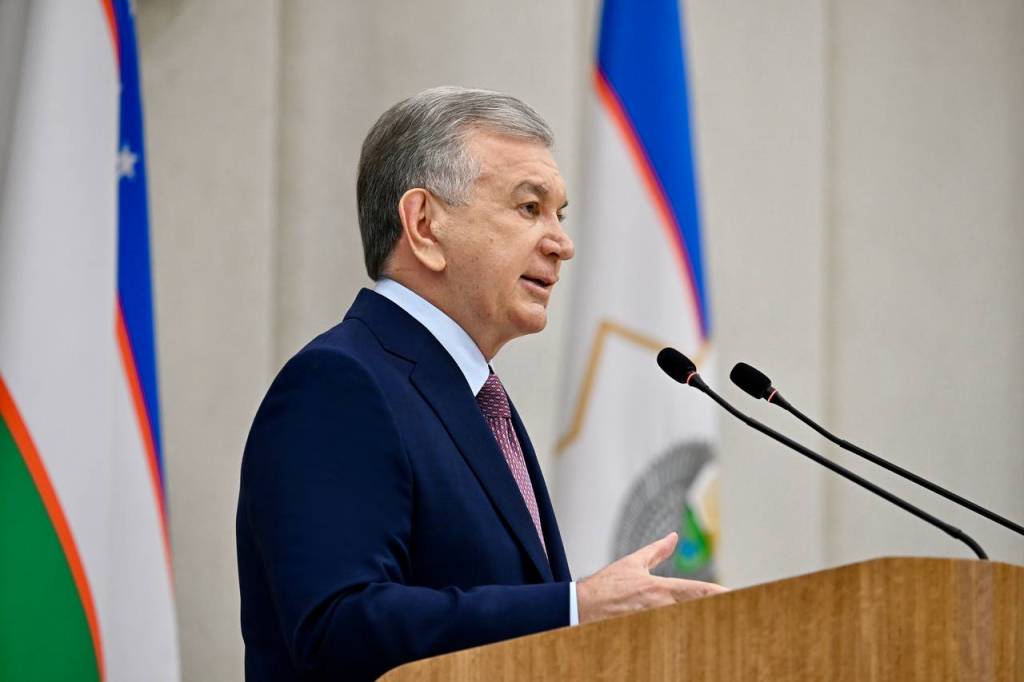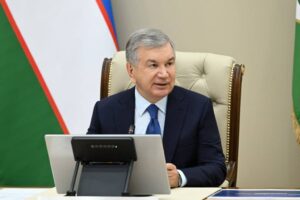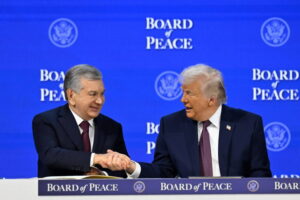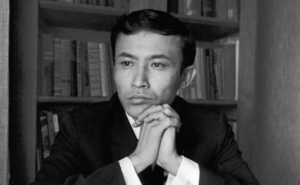President Mirziyoyev Unveils Major Reforms to Strengthen Local Governance and Public Services

Tashkent, The Gulf Observer: President Shavkat Mirziyoyev chaired a high-level meeting on Sunday to evaluate the progress of ongoing reforms, assess socio-economic performance, and address issues of concern to the public. The meeting placed strong emphasis on improving the responsiveness of governance and ensuring public satisfaction with state institutions.
At the outset, the President reviewed socio-economic indicators for the first five months of the year. Industrial output grew by 6.4 percent, exports increased by 18 percent, and foreign investment surged by 46 percent. More than 2,500 new production facilities valued at USD 3 billion were launched, generating employment for 2.4 million people.
However, President Mirziyoyev noted the mounting challenges posed by global conflicts, growing trade and logistics complications, and an urgent need to uphold peace, justice, and human dignity. He called on regional governors and ministers to accurately assess local conditions, strengthen dialogue with citizens and businesses, and resolve pressing issues promptly.
Governance and Reform Gaps Highlighted
An in-depth analysis revealed systemic shortcomings in governance. Despite the presence of over 40 organizations in each district employing roughly 500 staff, minor issues often require multiple layers of approval, slowing progress. Many authorized and well-funded agencies have reduced themselves to supervisory roles, rather than actively improving citizens’ lives.
Delays in implementing reforms have also been attributed to a lack of discipline and accountability among some ministers and senior officials. Complaints have increased regarding the non-enforcement of court decisions within legal timeframes.
To address these challenges, a plan to attract an additional USD 26.5 billion in investments and to launch 35 major projects worth USD 3.3 billion by September 1 was discussed. The successful conclusion of the recent Tashkent International Investment Forum, where agreements exceeding USD 30.5 billion were signed, was also noted, with emphasis on their systematic implementation.
Strengthening Executive Discipline and Public Oversight
A new governance mechanism was introduced to enhance accountability and improve the handling of citizens’ appeals. The Accounts Chamber will assume broader powers to monitor execution discipline, evaluate the effective use of funds, and assess public satisfaction. Based on its findings, it will submit regular recommendations to the President.
Simultaneously, the Control Inspection of the Presidential Administration will be abolished. A digital platform called “Khalq Nazorati” (Public Oversight), successfully piloted in Tashkent, will be rolled out nationwide to unify and streamline the processing of citizens’ appeals across all ministries, agencies, and regional administrations.
Overhauling the People’s Reception System
President Mirziyoyev expressed concern over the inefficiency of the People’s Reception Offices, which increasingly redirect appeals rather than resolving them. He stressed that every citizen’s appeal reflects human dignity and should be treated with empathy and urgency.
To address this, these offices will be staffed with competent specialists and directly overseen by regional and district hokims. From now on, each working day will begin with the review of public appeals, and local hokims will have expanded powers to resolve issues without bureaucratic delays.
New Management Model for District Governance
A comprehensive reform of district-level administration was unveiled. Starting this year, a new model will be introduced in Surkhandarya region and 16 rapidly developing districts and cities, including Bektemir, Kungrad, Chimbay, Asaka, Gijduvan, and Margilan.
Under the new model, local branches of nine key state agencies will be fully integrated into the hokimiyat (local administration), giving hokims authority over staffing and functional responsibilities. The hokim will appoint four deputies with clearly defined tasks and funding support. Districts that meet performance targets will receive a 10–15 percent budget increase, while underperforming ones may face leadership changes.
A dedicated “Reform Headquarters” will be established in each district, involving experts and business leaders. They will prepare a detailed three-year development plan, including infrastructure, investment, and employment strategies. Successful implementation will pave the way for national expansion of the model in 2026.
Salaries, Accountability, and Infrastructure Development
From August 1, salaries in all regional and district hokimiyats will be raised, with performance-based bonuses introduced to improve motivation and efficiency. Disciplinary measures will be taken against those who fail to meet expectations.
The meeting also addressed critical national priorities, including poverty reduction, employment generation, investment growth, and entrepreneurial support. Plans were discussed for improving water supply, developing modern agriculture, enhancing livestock productivity, and containing food price inflation.
Improving urban transport, road safety, and reducing congestion were also highlighted, along with expanding green spaces, recreation areas, and children’s playgrounds to elevate the population’s quality of life.
In closing, the Prime Minister, cabinet members, and regional hokims presented reports on their efforts to implement the directives outlined during the meeting. President Mirziyoyev reaffirmed that effective local governance remains the cornerstone of Uzbekistan’s development and modernization efforts.


